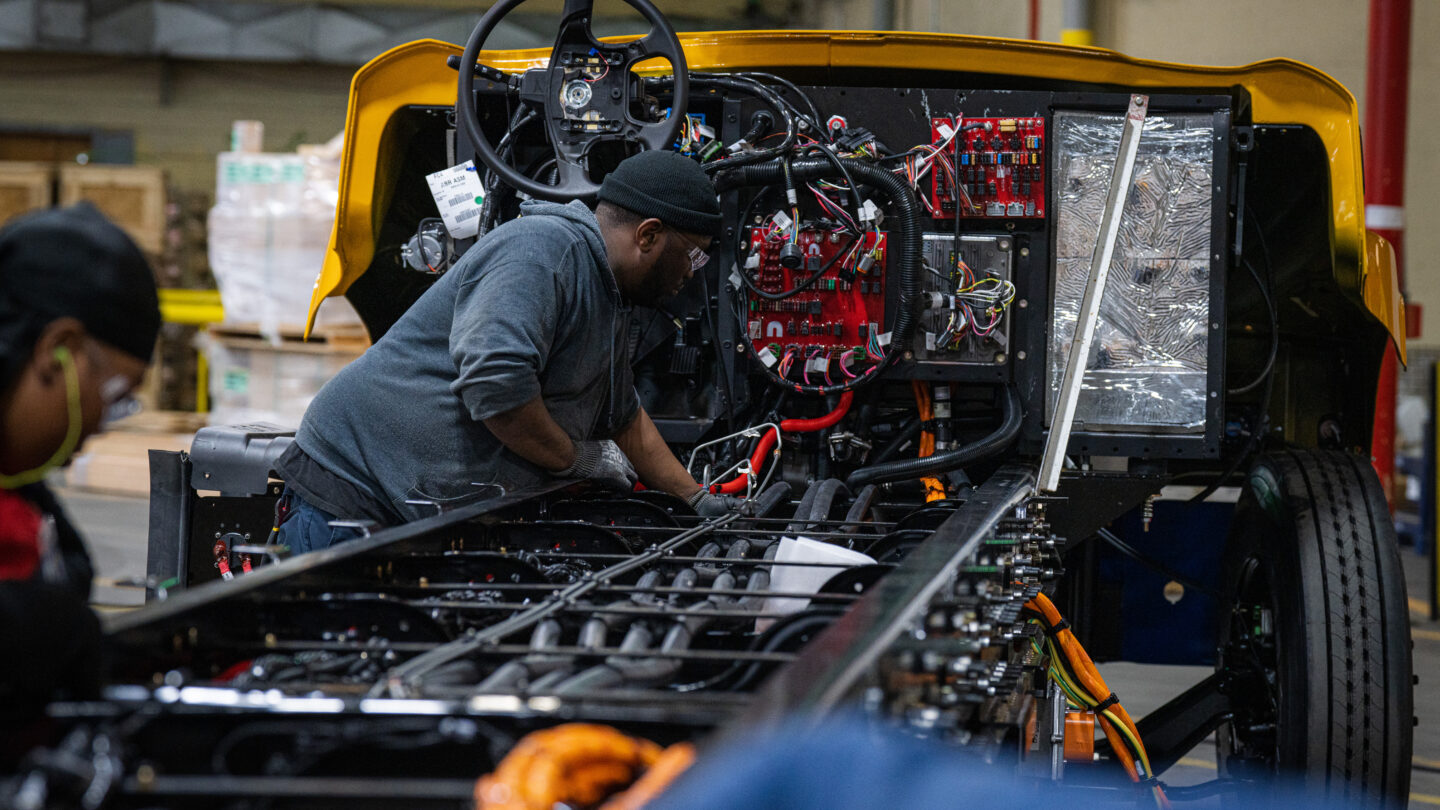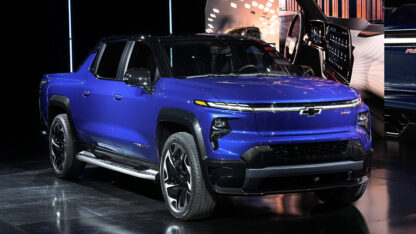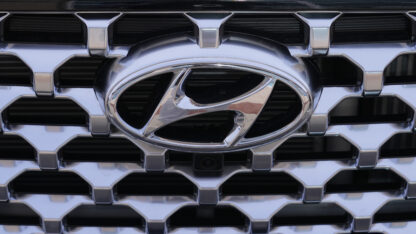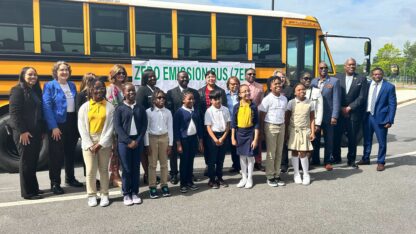Picture kids heading off to school. An early morning group toting backpacks, sports gear and lunchboxes waits by the side of the road as the big yellow school bus pulls up with a roar.
But in school districts around the country, the sound of the bus is increasingly the artificial hum of an electric vehicle. That shift is getting a boost from the federal government, which is spending billions of dollars to help districts buy electric buses.
Many of these new, quieter, cleaner school buses are built in Georgia by the 95-year-old Macon-based Blue Bird Corporation.
Blue Bird’s first school bus was a body mounted on top of a Ford Model-T chassis. Now, more than 1,000 people work at the manufacturing plant in the nearby middle Georgia town of Fort Valley, building all types of school buses from the ground up.
Antonio Bryant, who’s been with Blue Bird for 12 years, switched to the EV side about four years ago and now trains others to build the electric buses.
“Pretty much everyone that comes through here, I have a little hand in training them,” he said as workers hooked up the battery on an electric bus-in-progress.
Bryant said the work on the electric buses is pretty different, but he finds it exciting. And he’s proud to have a part in building the new buses.
“I love it,” he said.
Electric buses are a growing focus for the company, which manufactured its first demonstration EV for the 1996 Atlanta Olympic Games.
It started selling them commercially in 2018, as communities in California — often the first to push cleaner transportation initiatives — got funding to buy them.
Now, about 6% of Blue Bird’s volume is electric. Britton Smith, senior vice president of electrification and chief strategy officer at the company, said he expects that proportion to grow significantly.
“The momentum has changed,” he said.
That’s thanks to public funding to tackle climate change and air pollution. The U.S. Environmental Protection Agency distributes $5 billion to school districts to buy low and zero-emission buses.
The money comes from the Bipartisan Infrastructure Law that passed a couple of years ago.
Smith said he expects Blue Bird will sell about a billion dollars’ worth of electric school buses over the five years of the federal program.
The company has a grants team that helps school districts that might not otherwise have the know-how or time to apply for grants and other incentives for the new buses.
Orders from school districts are already coming in.
“What’s interesting about it is that we’re seeing orders from states that you would not expect,” Smith said.
“It’s really increasing the momentum in states that historically have not been excited about electric vehicles.”
Smith said that Blue Bird was already shifting away from diesel, its most popular powertrain. Diesel now accounts for less than half of the company’s volume. The rest is propane, natural gas and the expanding electric production.
Currently, Blue Bird has capacity to manufacture four electric buses a day, but the company is building out a facility where it plans to be able to build as many as 20 electric buses a day by the end of this year.
Meanwhile, workers at the company recently voted to unionize, asking for better pay, work-life balance and safer conditions.
“The idea is to make sure that as Blue Bird gains, and as they do better, so do the workers,” said Maria Somma, organizing director for the United Steelworkers.
She said the employees approached her union before the federal incentives for EVs started. Now that the company is benefiting from that funding, it’s only fair that the workers do, too.
“They really do deserve to have a say on, quite honestly, saving the planet,” she said. “They all have a vested interest in this. All of us do.”
The pandemic was a challenge for Blue Bird. Mike Shlisky, senior equity research analyst at D.A. Davidson, covering the EV sector, said it was a “down cycle” for the school bus market overall.
The company ran into supply chain issues, too, and last year there were layoffs.
But Shlisky said he believes things are looking up.
Blue Bird got ahead of its competitors on electric buses. Shlisky said Blue Bird’s market share of the entire school bus industry is about 30%. But looking at electric-only, he estimates it’s higher than that.
And in the electric vehicle sector overall, there’s something to be said for the company selling as many EVs as it is and doing it profitably, he said.
“There’s a lot of flash and a lot of new companies no one’s heard of before and a lot of capital being raised and things along those lines, but the company that’s actually doing just as just as good as all of them if not better is Blue Bird,” Shlisky said.
That’s a point Blue Bird employees make, too — when they see the electric truck ads on TV, or people talking about Teslas, or the big announcements about new EV factories coming to Georgia — they say they’re part of this electric revolution, too.
“We’re here, and have been,” said Greg Thompson, order control manager at the Blue Bird plant.
And Blue Bird EV trainer Bryant said he could see his handiwork on the roads.
He said his dad, who works in a rural Georgia school system, recently told him his district is getting an electric bus from Blue Bird.
“That made me think, ‘Hey, I do this so my hometown get one that I actually built,’” Bryant said. “That’s kind of cool, right there.”









